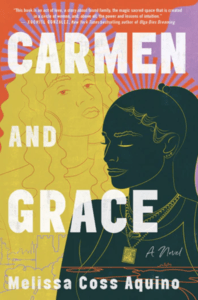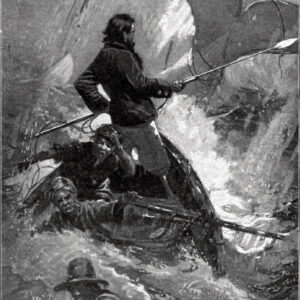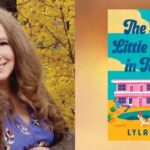
What It Feels Like to Publish Your Novel After 30 Years
Melissa Coss Aquino on Being an Older Debut Novelist
How does it feel to FINALLY get your novel published?
Depending on who’s asking, I might answer “I’m all the way up,” and if we grew up together in the Bronx, they might hear that Fat Joe and Remy Ma song playing in their head, the next part of which goes “nothing can stop me, I’m all the way up.”
The dreams of a 19-year-old are not the dreams of a 53-year old (for which we are all grateful), and neither are the playlists. Yet, some dreams, and some songs, persist. Publishing a debut novel after fifty is inevitably a long story, but publicity windows are short. A truncated few weeks, before and after the pub date, give rise to “all the feels,” and then quietly recede into Life After Publication—otherwise known as the rest of your real life, whatever that looks like. I’m here for all of it. Having already lived the longer portion of my life—unless I manage to live to be 107—is a gift in this way; my perspective has deep roots.
Up front and visible is a wild, exhilarated joy. Think: top down on my 10-year-old Jeep with the music blasting, on my way to Orchard Beach. Then there is the relief: a giant exhale of all the ways we have been set up to imagine that our lives are measured by achieving things the world values. I listened to that same song on repeat—I’m all the way up, I’m all the way up—as I waited in the library for my PhD defense to begin (at 48, for the record). I was using it, mostly that one line and the sick beat, to will a kind of bravado and self-confidence into being that is almost impossible to achieve in that setting. Now, the song is more like an anthem for a victory lap I might call vision accomplished.
My dream of being a writer was born in the fourth grade (we can blame Judy Blume, Brenda K Wilkinson and Carolyn Haywood), took shape in high school, and was declared out loud to my first creative writing teacher at 19. The 19-year-old collapsed writing and publication into one dream, but the 53-year-old knows better. I may be taking a victory lap now, but it’s tempered by my knowledge that my dream actually came true long ago, when I began to think of writing as a way of life.
Still, it cannot be denied that reaching an audience (something that is not guaranteed by publishing a book, by the way) is a goal for most writers, who after all are usually readers whose own lives have been touched—or in my case, healed—by books. Writing a book, and submitting it for publication, is akin to making an offering on that giant altar of medicine and flowers and candles in the dark that a bookshelf can represent. It took me a long time to craft my offering, and now it exists to be received by whomever might need/want/be ready to receive it. This is the victory.
Mostly, I don’t see my age as that significant. In publishing, many have gone before me and done exceptional things at later ages. Frank McCourt and Laura Ingalls are everyone’s go-to writers in this category. I read and enjoyed them both without any knowledge of how old they were when their books were published. And there is a new batch of us every year. In October 2022, Poets and Writers published their now seventh annual feature on debut authors over the age of 50, describing their paths to publication as “narratives of resilience, of persistence, of writing through rejection and loss and, in some cases, through trauma.”
All of this is true for me. Part of my long exhale of relief is knowing that writing has often helped me live through, and make sense of, that long path. At 19, I believed that publication would vindicate what I then thought was the worst of it. Many greater losses and traumas later, the 53-year-old knows that the only redemption is survival, which in my case was deeply supported by writing—not by publication. Publication is only happening now, and keeping it real requires I acknowledge I am closer to death than ever, at least on the official timeline.
It was the writing that came before, and the life lived in between, that turned me into the writer who would be willing and able to write this book.
Thirty years to publication was not the “plan.” However, it is the story of Carmen and Grace. Many proclaim that the secret to success in writing is to keep your butt in the chair and just write. But the lives of the writers and books we love tell a different story. The sit-down-and-write keeps getting interrupted by the get-up-and-live. Yes, park your butt in the chair, but also, good luck with that when your life simply won’t allow it. Also: a bed, a couch, a park bench will do just as well.
Figuring out the difference between procrastination and urgency is every writer’s challenge. But my story of publishing a debut novel at 53 is more about tenacity and perseverance than procrastination. There were actually more good reasons for me to abandon the project of publishing a novel than to continue.
The idea was born in my heart at 23, and took 10 years of active writing—mostly in the summers, in between a ton of life. What I realized along the way was that to actually write the book would force me to grow, and that was my reason for not giving up. It was the writing that came before, and the life lived in between, that turned me into the writer who would be willing and able to write this book and send it out into the world, no matter how long it took or what the outcome.
We live in a culture that celebrates the young and the precocious. Given the world we have created for them, I am not against this at all. However, we owe it to the young , and ourselves, to also offer the tales of persistence and tenacity that will help them outlive their brief stint as precocious youth in a precarious world, so they might live full lives as artists and humans who will, no matter their age, find a million reasons to try the thing that makes them feel like they’re “all the way up.”
How does it feel to FINALLY have my novel, Carmen and Grace, published? It feels thrilling and terrifying like the rollercoaster ride that does that very slow climb up, only to drop you through gravity much faster. Writing is the long slow ride, and publication the ‘can’t stop now’ plunge that ends before you realize it. I am not a huge fan of rollercoasters, but I am here for the ride and the thrill is real. What I intuit is that it would not have been any more exciting or satisfying at any other age, so 53 turns out to be the perfect age for a debut novel.
__________________________________

Melissa Coss Aquino is the author of Carmen and Grace, available now from William Morrow, an imprint of Harper Collins.
Melissa Coss Aquino
Melissa Coss Aquino is a Puerto Rican writer from The Bronx. She received her MFA from The City College of New York, CUNY, and her Ph.D. from The Graduate Center, CUNY in English. She currently works as an Associate Professor in the English department at Bronx Community College, CUNY. She is a proud IWWG, VONA, AROHO and Hedgebrook alumna.



















